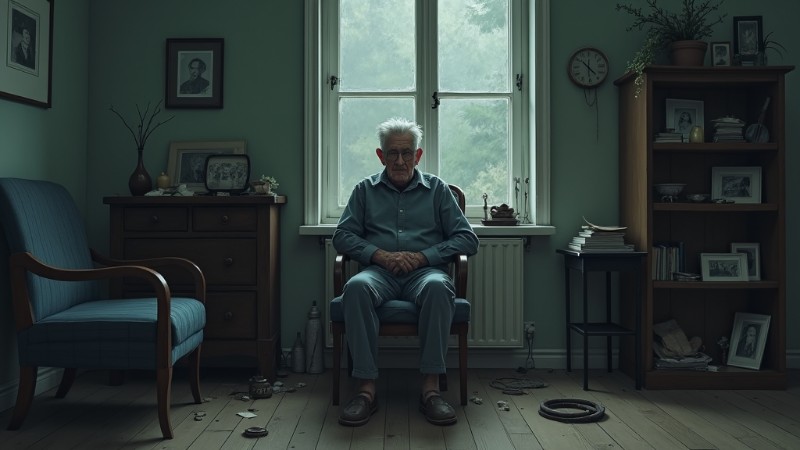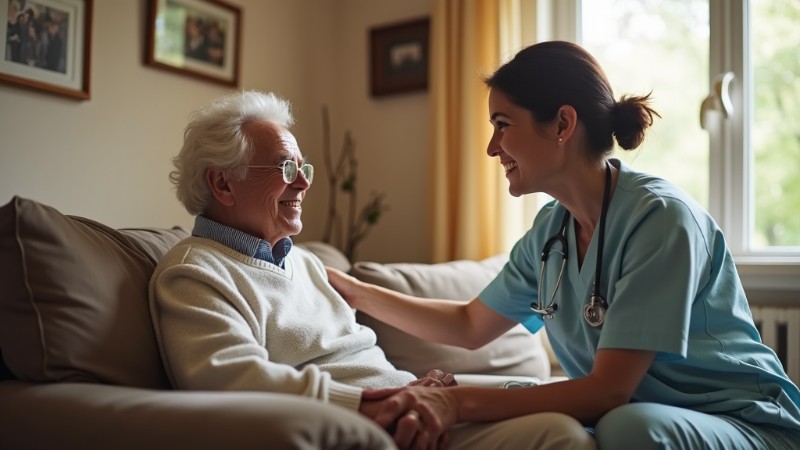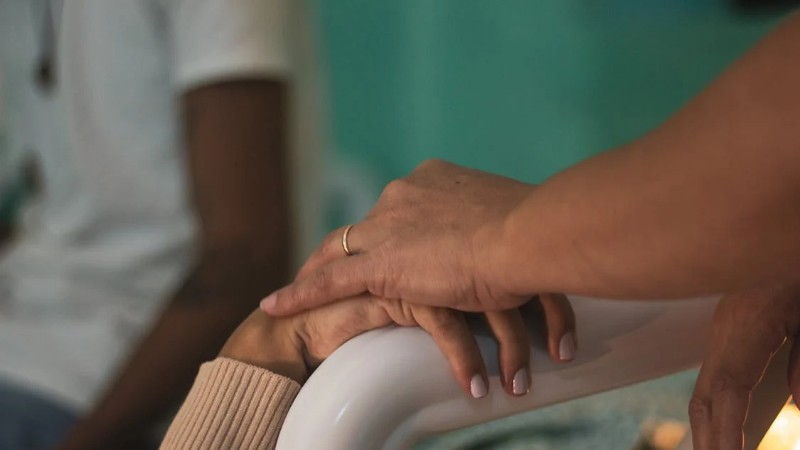Losing a loved one is an experience that resonates deeply, often leaving emotional scars that can last a lifetime. A recent study conducted by researchers at Columbia University’s Mailman School of Public Health and the Butler Columbia Aging Center sheds light on a lesser-known consequence of such loss: accelerated biological aging. This research establishes a significant connection between grief and the aging process, revealing how the loss of family members can impact health well beyond the emotional toll.
Key Takeaways
A recent study reveals that losing a loved one can accelerate biological aging, leading to long-term health disparities.
- Individuals who experienced the death of a parent, partner, sibling, or child exhibited signs of accelerated biological aging compared to those who did not endure such losses.
- The effects of loss on biological aging can emerge well before middle age, contributing to health disparities among different racial and ethnic groups.
- Epigenetic clocks, which assess an individual’s biological age by analyzing DNA methylation patterns, can serve as a powerful tool in understanding the long-term effects of loss.
The study and its findings
The study published in JAMA Network Open investigated the relationship between familial loss and biological aging among individuals at various life stages. It found that individuals who experienced the death of a parent, partner, sibling, or child exhibited signs of accelerated biological aging compared to those who did not endure such losses.
Dr. Allison Aiello, the study’s lead author and a professor of health longevity in Epidemiology, noted that the research demonstrates strong links between losing loved ones throughout the life course—from childhood to adulthood—and faster biological aging in the U.S.
Biological aging is characterized by the gradual decline in how well our cells, tissues, and organs function, which raises the risk of developing chronic diseases. This type of aging is assessed using DNA markers known as epigenetic clocks. These clocks help scientists determine how quickly our bodies are aging at a cellular level, providing a clearer picture of an individual’s biological age.
The researchers analyzed data from the National Longitudinal Study of Adolescent to Adult Health, which started in 1994 and has tracked thousands of participants from their teenage years into adulthood. They categorized the losses into two groups: those that occurred during childhood or adolescence (up to 18 years old) and those that happened in adulthood (ages 19 to 43). Additionally, the study examined the overall number of losses that individuals faced throughout their lives.
Impact of loss on biological aging
The study revealed that the effects of loss on biological aging can emerge well before middle age, contributing to health disparities among different racial and ethnic groups. Nearly 40% of participants reported experiencing at least one loss in adulthood, with parental loss being more common in adulthood than in childhood (6%). The findings highlighted that individuals who experienced two or more losses had older biological ages as indicated by several epigenetic clocks.
For the analysis, biological age was determined by examining DNA methylation patterns in blood samples. The research employed various epigenetic clocks, including DunedinPACE, Horvath, PhenoAge, and GrimAge. Each of these tools provided insights into how losses accumulate over time and their effects on biological aging. The results indicated that the more losses individuals faced, particularly in adulthood, the more pronounced their biological aging appeared.
Dr. Aiello emphasized the need for further research, stating, “Few studies have looked at how losing a loved one at different stages of life affects these DNA markers, especially in study samples that represent the U.S. population.” This study fills a significant gap in understanding the biological ramifications of grief, particularly among vulnerable populations.
The emotional and physical toll of grief
The emotional fallout from losing a loved one is profound, often leading to long-term mental health challenges. Studies have consistently linked grief to various health issues, including anxiety, depression, and increased risks of cardiovascular diseases. The death of a parent or sibling, particularly during formative years, can have devastating effects. Research has shown that early loss can lead to cognitive difficulties, increased susceptibility to mental health disorders, and higher mortality rates.
The impact of loss extends beyond the individual to affect families and communities, particularly among racial and ethnic minorities who may experience higher rates of loss. The study found that a larger proportion of Black and Hispanic participants experienced at least one loss compared to White participants. This discrepancy raises questions about the broader societal factors contributing to health disparities linked to grief and loss.
Moreover, the health implications of losing a close family member are not confined to the immediate aftermath of the loss. Repeated losses can accumulate over time, compounding health risks.
Aiello and her co-authors noted that while loss at any age can have lasting health impacts, the effects are often more severe during key developmental periods like childhood and early adulthood. “We still don’t fully understand how loss leads to poor health and higher mortality, but biological aging may be one mechanism as suggested in our study,” Aiello stated.
The role of epigenetic clocks
Epigenetic clocks are a groundbreaking advancement in understanding biological aging. By analyzing DNA methylation patterns, scientists can assess an individual’s biological age more accurately than chronological age alone. This technology allows researchers to link various life experiences, including loss and grief, to biological changes within the body.
The study’s findings suggest that these epigenetic markers can serve as a powerful tool in understanding the long-term effects of loss. As the researchers highlighted, “Experiencing two or more losses in adulthood was more strongly linked to biological aging than one loss and significantly more so than no losses.” This finding emphasizes the importance of considering cumulative loss as a significant factor in health outcomes.
Furthermore, the study underscores the potential for epigenetic clocks to inform future health interventions. By identifying individuals at higher risk due to their experiences of loss, healthcare providers can implement targeted strategies to address both the emotional and physical repercussions of grief.
Coping with loss and moving forward
Considering loss’ profound impact on biological aging and overall well-being, it is essential to meet the emotional and psychological needs of those dealing with grief. The researchers advocate for providing resources to help individuals navigate the trauma associated with loss. “For those who experience loss, providing resources for coping and addressing the trauma is essential,” Aiello concluded.
Support systems, including counseling and community resources, play a vital role in helping individuals process their grief and mitigate its long-term effects. Encouraging open discussions about loss and mental health can foster resilience and promote healthier coping mechanisms.
Additionally, the study highlights the need for public health initiatives aimed at reducing the disproportionate impact of loss among vulnerable groups. By acknowledging the unique challenges faced by different racial and ethnic communities, policymakers can work to create more equitable support systems.
Promoting resilience in the face of loss
The connection between grief and biological aging is a crucial area of study that reveals the hidden costs of heartbreak. As the research from Columbia University demonstrates, losing a loved one can accelerate biological aging and contribute to long-term health disparities. Grasping the mechanisms underlying this connection is crucial for creating effective interventions that tackle both the emotional and physical impacts of grief.
As we continue to explore this complex relationship, it becomes increasingly clear that comprehensive support for individuals experiencing loss is essential. By investing in mental health resources and fostering community resilience, we can help mitigate the adverse effects of grief and promote healthier aging for all individuals, regardless of their experiences.
The findings from this study serve as a call to action for researchers, healthcare providers, and policymakers alike to prioritize the health impacts of loss and grief in their efforts to support individuals and communities.














